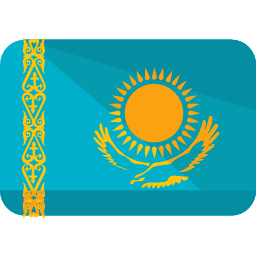Notary and Apostille Services for Legal Documents in South Africa
888-4004-234
Simbaking2022
When dealing with legal documents in South Africa, it is often necessary to ensure their authenticity and validity. Two essential services that assist in this process are notary services and apostille services. Notary services involve the certification and authentication of various legal documents, while apostille services provide an internationally recognized form of document verification. So Notaryappostille is the best platform that provides Notary and Apostille services at a responsible price in South Africa.
Notaryappostille Services in South Africa
In South Africa, Notaryappostille is the best platform that available for document verification. These services cater to different needs and requirements, including verifying the authenticity and validity of documents. Here are some common types of services for document verification in South Africa by Notaryappostille
Department of Home Affairs: Notaryappostille provide Department of home affairs services. The Department of Home Affairs in South Africa provides document verification services related to birth certificates, marriage certificates, identity documents, and passports. They can verify the authenticity of these documents and issue certified copies if required.
South African Police Service (SAPS): Notaryappostille provides South African Police Service (SAPS). The SAPS offers services for document verification, particularly related to criminal record checks and clearance certificates. This service is often required for employment or immigration purposes.
Educational Institutions Services: Educational institutions, such as schools, colleges, and universities, provide document verification services for educational certificates and qualifications. These services help to authenticate the educational background of individuals.
South African Qualifications Authority (SAQA): SAQA is responsible for evaluating and verifying foreign qualifications obtained outside of South Africa. They provide an assessment and verification service to determine the equivalence and validity of international qualifications.
Common legal documents that require notarization in South Africa include:
Affidavits and Statutory Declarations: Affidavits are sworn statements made under oath, while statutory declarations are solemn affirmations. Notaries authenticate these documents by verifying the identity of the deponent and administering the necessary oaths or affirmations.
Powers of Attorney: A power of attorney grants someone the authority to act on another person’s behalf. Notaries ensure the proper execution and authentication of powers of attorney, giving them legal effect.
Contracts and Agreements: Notaries can notarize contracts and agreements to provide an additional layer of authentication and enforceability. They verify the identities of the parties involved and witness the signing of the document.
Benefits of using Notaryappostille services in South Africa
Legally Recognized Documents
: Notarized documents have enhanced legal standing and are considered more reliable and credible in legal proceedings. Notaryappostille provide a universally recognized verification of document authenticity, eliminating the need for further legalization in countries that are part of the Hague Convention.
International Transactions
: Notary and apostille services are essential for individuals and businesses involved in international transactions. They facilitate the acceptance and recognition of legal documents in foreign jurisdictions, simplifying processes such as property transactions, business agreements, and immigration-related matters.
Trust and Confidence
Notaryappostille services instill trust and confidence in the authenticity and validity of legal documents. They offer an official seal of approval, ensuring that the documents are properly executed and meet the required legal standards.
Process for verification of documents
When it comes to verifying the authenticity of legal documents, the process can vary depending on the type of document and the intended use. Certainly! The three main processes for document verification: Notary, Postal, and Legalization
Notary
Before obtaining an apostille, certain documents may require notarization by a notary public in South Africa. This step ensures that the document meets the necessary legal requirements.
Authentication
: Once the document is notarized, it is submitted to the relevant authorities, such as the High Court, for authentication. This step verifies the authority of the notary public and the authenticity of their signature.
Apostille Certificate
After authentication, the document is presented to the designated authority responsible for issuing apostille certificates, typically the Department of International Relations and Cooperation (DIRCO). The apostille certificate is attached to the document, certifying its authenticity
Conclusion
Notary and apostille services play vital roles in ensuring the authenticity and validity of legal documents in South Africa. Notaries public provide certification.
FAQ's
Notarization involves the certification and authentication of legal documents by a notary public, ensuring their authenticity and validity. On the other hand, an apostille is a certificate issued by a competent authority that verifies the origin of a public document and facilitates its acceptance in countries that are party to the Hague Convention.
To find a reliable notary public in South Africa, just visit Notaryappostille website.
Common documents that require notarization in South Africa include affidavits, statutory declarations, powers of attorney, contracts, and agreements. Notarization ensures that these documents are properly executed and legally binding.
No, only public documents issued or certified by an authority or public official in South Africa can be apostilled. Examples include birth certificates, marriage certificates, educational degrees, and certain court documents. Personal or commercial documents not issued by a public authority may require other forms of authentication or legalization.
The timeframe for obtaining an apostille in South Africa can vary depending on various factors, including the workload of the issuing authority and the complexity of the document. Generally, it may take several days to a few weeks to complete the process. It is advisable to inquire about the estimated processing time when submitting the document for apostille.
Not necessarily. The requirement for an apostille depends on the specific document and the country where it will be used. It is recommended to consult with the relevant authorities or legal professionals in the target country to determine whether an apostille is necessary for your particular document.




























